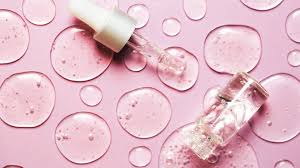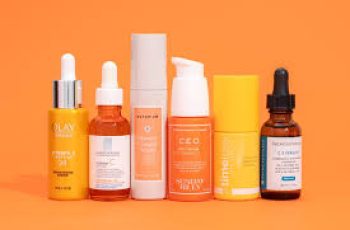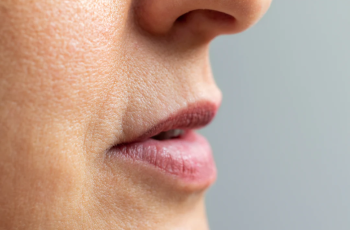
Unlocking the Power of Squalene and Squalane in Skin and Hair Care: What You Need to Know
Believe it or not, our bodies are equipped with remarkably intelligent systems designed to protect us from environmental harm. These include defenses against air pollution, prolonged sun exposure, and even some mechanisms that may reduce the risk of cancer. One of the most fascinating and complex protective systems we have is our skin—an organ that not only shields us physically but also plays an integral role in immune defense, hydration, and temperature regulation.
At the heart of this natural defense system is a compound that was once overlooked but has since become a star in the skincare and cosmetic world: squalene, and its more stable counterpart, squalane.
What Is Squalene, and Why Is It So Important?
Squalene is a naturally occurring lipid produced by both plants and animals, and it’s also a component of the human sebum—the oily substance secreted by sebaceous glands in our skin. This oil is essential for keeping the skin soft, smooth, and supple. In human biology, squalene acts as a natural emollient, lubricant, and antioxidant that defends the skin against oxidative stress caused by environmental pollutants and UV rays.
Squalene isn’t just beneficial; it’s essential to skin health. Unfortunately, like many biological processes, the body’s natural production of squalene decreases with age. This reduction leads to common signs of aging such as dry skin, fine lines, and a compromised skin barrier.
The Rise of Squalane: Skincare’s Best-Kept Secret
With the booming popularity of natural, science-backed skincare, squalane—the stable, hydrogenated form of squalene—has taken center stage. Unlike squalene, which oxidizes rapidly and has a very short shelf life, squalane is shelf-stable and suitable for use in a wide range of cosmetic formulations.
It’s no surprise that beauty influencers, dermatologists, and wellness communities have embraced squalane. On platforms like TikTok, hashtags like “#squalane” have generated millions of views, with users showcasing glowing skin transformations and simplified routines using squalane serums, creams, and oils.
Where Does Squalene Come From? Is It Sustainable?
Historically, one of the most concentrated sources of squalene was found in the livers of deep-sea sharks—a practice that has drawn ethical criticism and environmental concern. Today, most cosmetic-grade squalene (and squalane) is plant-derived, sourced from olives, rice bran, sugarcane, and amaranth seed, making it a much more sustainable and cruelty-free option.
Before purchasing skincare products, it’s always wise to verify their ingredient sourcing. Look for labels that indicate “plant-derived” or “vegan squalane”, especially if you are concerned about animal welfare and environmental sustainability.
Squalene vs. Squalane: What’s the Real Difference?
Though their names are nearly identical, squalene and squalane are chemically distinct:
Squalene (with an “e”) is the natural, unsaturated compound found in our skin and in animal or plant sources. It is highly beneficial, but it is also unstable and prone to oxidation when exposed to air or light.
Squalane (with an “a”) is the hydrogenated form of squalene. Hydrogenation converts the double bonds in squalene to single bonds, making it more stable, non-oxidizing, and suitable for long-term storage and cosmetic formulation.
In essence, squalane retains all the nourishing benefits of squalene—without the downside of rapid degradation.
6 Remarkable Benefits of Squalane for Skin and Hair
1. Prevents Premature Aging
Squalane is often praised as a powerful anti-aging emollient. Because it is so similar to the skin’s natural oils, it integrates seamlessly into the lipid layer of the epidermis. This not only restores moisture but also reduces the appearance of fine lines, wrinkles, and dullness.
By replenishing the skin’s moisture content, squalane helps to plump the skin, promoting a youthful and radiant glow. Many users report significant improvement in skin texture and elasticity after consistent use of squalane-based products.
💡 Tip: Incorporate a night cream enriched with vegan squalane and hyaluronic acid to lock in moisture while you sleep. Look for formulas that also contain glacier glycoproteins to enhance skin regeneration.
2. Mimics Skin’s Natural Oils
Because squalane is biomimetic—meaning it mimics the natural lipids our bodies produce—it is well-tolerated by nearly all skin types, including sensitive and acne-prone skin. It helps strengthen the skin barrier, reducing trans-epidermal water loss and shielding against UV rays, toxins, and allergens.
In fact, one of squalane’s hidden strengths is its ability to enhance sunscreen performance, creating an additional line of defense against skin-damaging carcinogens.
3. Deep Hydration and Moisturization
As we age, the body’s production of squalene slows significantly. This results in dryer, less resilient skin. Reintroducing this lipid through skincare products helps restore the natural moisture barrier.
Squalane-infused serums and creams provide a silky-smooth texture without feeling greasy or heavy. They penetrate deeply into the dermis, locking in hydration for hours.
💡 Top Pick: Try a facial oil like Dreamy Glow Drops, which blends squalane with other antioxidants for soft, hydrated skin and a radiant finish.
4. Strengthens and Nourishes Hair
Squalane’s benefits extend far beyond the skin. When applied to the hair, squalane oil acts as a lightweight, non-greasy moisturizer that protects against heat, pollution, and UV exposure.
It can help repair split ends, restore shine, and reduce frizz. Unlike heavier oils that can clog follicles or weigh down fine hair, squalane absorbs quickly and leaves a soft, natural sheen.
💡 Usage: Warm a few drops between your palms and smooth onto damp or dry hair. Rinse after 20 minutes for deep nourishment, or leave in for a subtle gloss.
5. Non-Comedogenic: Won’t Clog Pores
One of the most remarkable features of squalane is its non-comedogenic nature. Unlike mineral oils and heavy occlusives, squalane allows the skin to breathe. It doesn’t clog pores, making it ideal for individuals with oily or acne-prone skin.
Squalane also has a soothing effect on active acne, reducing redness, calming irritation, and speeding up recovery.
💡 Product to Try: Add a Deep Pore Cleanser with squalane to your regimen—it exfoliates, removes impurities, and moisturizes all in one.
6. Improves Overall Skin Appearance
Squalane can visibly improve the overall tone, texture, and clarity of the skin. Regular use helps:
Lighten dark spots and hyperpigmentation
Fade acne scars
Soothe eczema flare-ups and rosacea
Reduce inflammation and redness
Its antioxidant properties help neutralize free radicals, protecting the skin from oxidative stress and slowing the degradation of collagen and elastin.
Who Should Use Squalane?
Because of its gentle, hypoallergenic nature, almost everyone can benefit from using squalane. It’s safe for:
Dry and sensitive skin types
Oily and acne-prone skin
Mature skin seeking anti-aging solutions
Individuals undergoing cosmetic procedures like chemical peels or laser treatments
Even babies and pregnant women can safely use plant-derived squalane for skin softening and barrier repair, though it’s always advisable to check with a healthcare provider.
How to Incorporate Squalane Into Your Routine
Incorporating squalane into your skincare and haircare regimen is simple:
Use squalane oil as a serum after cleansing and before moisturizing.
Mix a drop into your foundation or BB cream for a dewy finish.
Apply to the hair shaft and ends before heat styling.
Use it as an overnight treatment to restore moisture while you sleep.
Look for cleansers, creams, or masks that contain squalane as a base ingredient.
Final Thoughts: Nature’s Answer to Modern Skincare
From a relatively unknown compound to a multi-functional skincare superhero, squalane has rightfully earned its place in the limelight. It offers the hydration of a heavy cream, the lightweight feel of a serum, and the protective powers of a natural antioxidant—all in one elegant solution.
Whether you’re looking to combat dryness, reduce signs of aging, heal damaged hair, or find a reliable moisturizer that won’t clog your pores, squalane is a worthy addition to your routine.
Next time you’re scanning product labels, remember: squalane might just be the transformative ingredient your skin (and hair) have been waiting for.


